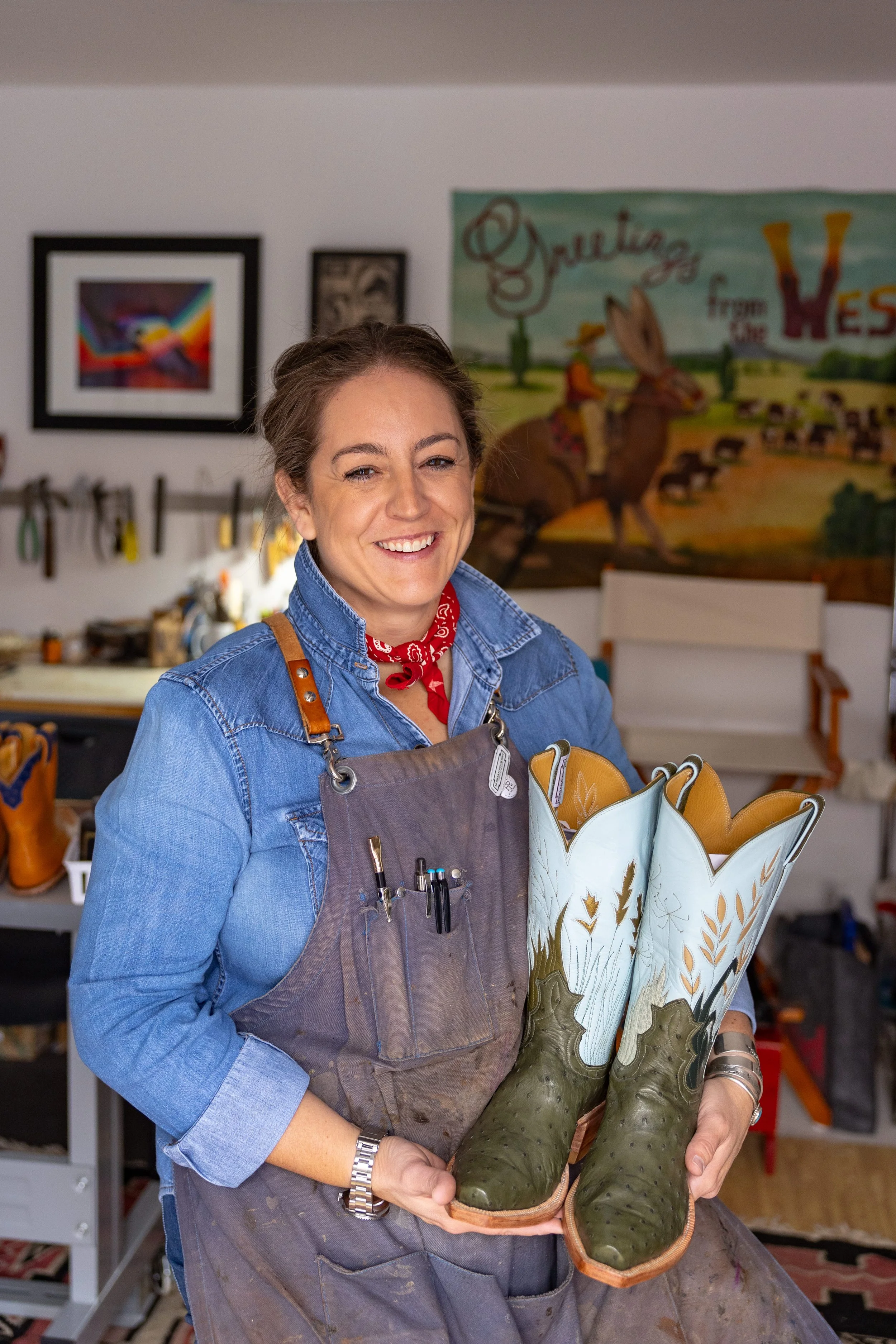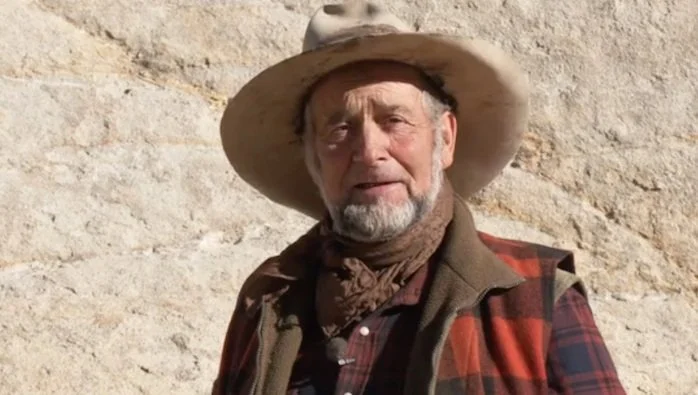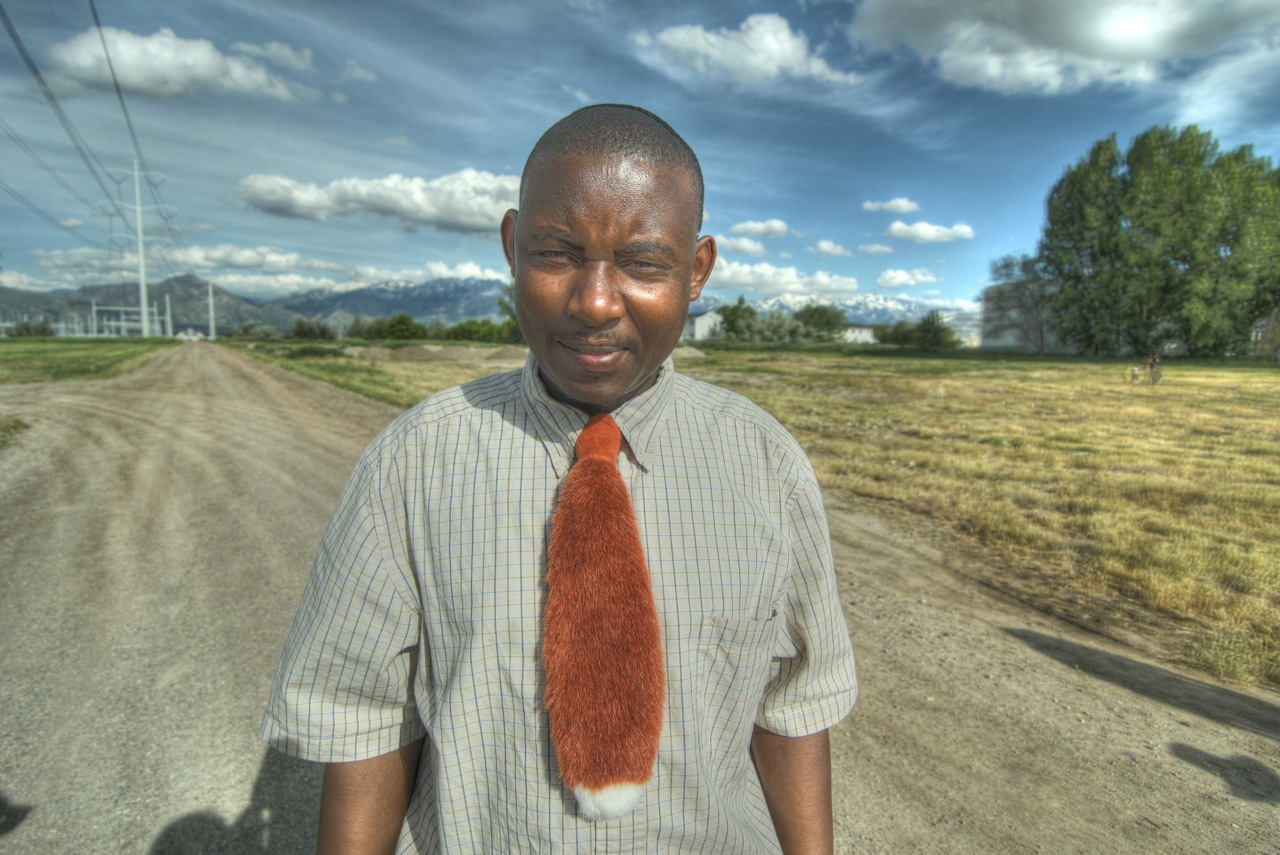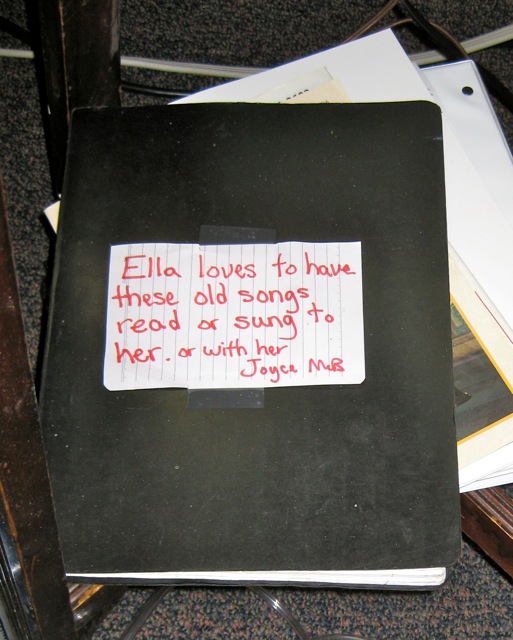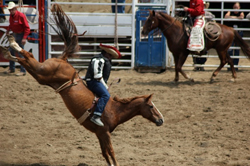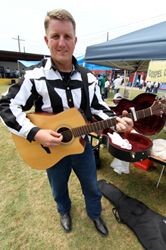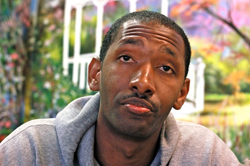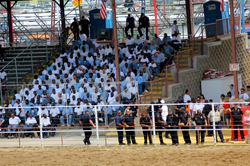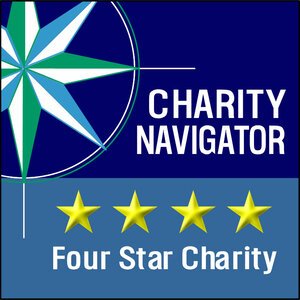George Gund, III May 7, 1937 - January 15, 2013
By Hal Cannon, Western Folklife Center Founding Director
CPG2006 General Scenes
George Gund III, friend and longtime supporter of the Western Folklife Center, passed away January 15 in Palm Springs, California, where he had been suffering from stomach cancer. He will be missed.
George was a great friend to many of us and it is fair to say that without his support there would not be a Western Folklife Center today. In 2013 the National Cowboy Poetry Gathering is such a well-known and beloved event that it seems as it if it has always been here. Things were different in 1984 when we were out trying to raise funds to start it. We approached many of the corporate sponsors behind rodeo and other cowboy events and virtually all of them laughed us out of the room at the idea of cowboys reciting poetry. Individual supporters were no easier to find. George came forward as the only individual contributor that first year and wrote a check. He saw the promise of the idea and was willing to take a chance.
He joined our Board of Trustees in 1986, making him the longest-tenured board member in the organization. In recent years his son, George Gund IV (Crunchy), joined the board as well. For many years George hosted legendary board retreats at his ranch in Lee, Nevada, or at one of his homes in Palm Springs and on Stuart Island in the San Juan Islands. When the Western Folklife Center had the opportunity to purchase the old Pioneer Hotel out of bankruptcy, George bought the building on our behalf. In recognition of all he did to create a home for the organization, we named the G Three Bar Theater after his brand.
Today, there have been articles published about George all over the country. In Cleveland, his hometown, he is being remembered as former owner of the Cleveland Cavaliers and as a patron of the arts. In the Bay Area, his adopted home, he is being remembered as a founder of the San Francisco Film Festival and the professional hockey team, the San Jose Sharks. In most articles people talk about his world-class eyebrows, his unconventional ways, his Bohemian nature. But what all these various articles prove is how wide his interests were, how many friends he had, and how generously he supported the things and the people he loved.
PCD001-072_CPG2001_Sue_Rosoff_1 4x6 copy
George helped several cities become better places. Here in Elko we know yet another aspect of George that few of his urban friends had the chance to experience. He was an avid rancher and attended the Nevada Cattlemen’s meetings each year. He was always interested in cowboy traditions but he also wanted to know the latest about breeds and new ways of grazing. George was a horticulturalist. He loved taking people to his gardens in Palm Springs and picking exotic citrus fruits as they strolled the grounds. He had an extraordinary eye for art. His collections of Asian arts, Northwest Indian wood carvings, and western drawings and paintings are all unique. He did not buy art for investment. He collected art that he loved.
George loved ordinary people from bellhops to hockey-playing kids to young filmmakers. He was deferential to everyone. Often people had no idea of his wealth. He did not put on airs. He loved cowboys and ranch people and was involved from the beginning in the Folklife Center’s attempts at ”grass roots diplomacy” through international cultural exchanges with ranching people around the world. He not only funded some of these efforts but acted as photographer and friend during fieldwork documenting Australian drovers and South American gauchos.
It seems that most people who knew George have at least a few stories about him. Every time you were with him, the occasion turned into an adventure. Usually he didn’t initiate the adventure so much as bring it out of those who are adventurous at heart. I’d like to tell a couple of personal stories about George. The first is mine; the second is from my dear wife Teresa who now serves as a Trustee of the Western Folklife Center.
When I was traveling to Australia to find bush poets to bring to the Gathering, George offered to take me Down Under on his plane. Just getting off the ground was an adventure but finally we got underway.
After a long day of flying over the Pacific Ocean as far as the eye could see, George told the pilots we would land at the Marshall Islands for a night of rest and refueling. We landed on the atoll island of Majuro, and the next morning, on our way back to the airfield from our hotel, we made a quick visit to the village museum. We got to talking with the woman at the desk who had lived on the Islands for many years and learned that she was originally from my hometown of Salt Lake City. She grew up in a neighborhood where I had gone to a yard sale just the day before. When I told her that, she looked at me point blank and asked, “Did you buy my cowboy piano?” Sure enough I had. I was stunned to think the world could be so small. I glanced at George to read his reaction but he didn’t even twitch one of his voluminous eyebrows. Later I asked him why he didn’t seem surprised. I realized in his answer that George was constantly running into people he knew all over the world. This coincidence didn’t seem out of the ordinary. George’s world was a small world. By the way, that cowboy piano that I purchased those many years ago has been donated to the Western Folklife Center and can be heard every year at the National Cowboy Poetry Gathering in the Pioneer Saloon under the great care of pianist Dave Bourne.
This from Teresa: “For our honeymoon, George offered Hal and me his cabin on Stuart Island. He met us at Dutch Harbor to take us over to Stuart on his needle-nose yacht, the Lambada. It was the day of the Russian coup and the San Jose Sharks had just brought a player over. The player's family was still in Russia and George was terribly worried that they would not be able to get out. As we headed back to Stuart Island, George was talking on his satellite phone to Russia, but being George, he was also fishing, and he caught a big salmon. I remember him on the nose of the Lambada, trying to juggle the phone and the fish and the international conversation… Oh, there are so many more stories, and all of them, at their heart, revolve around his great spirit and generosity and concern for others. I just can't imagine the world without him.”
George was one of the most original people Teresa and I have ever met. We feel a great sense of loss at his passing. Our hearts go out to his family and our love to all those who loved George.
Please share your own stories and memories of George in the comment section of this blog.
Read George Gund’s obituary in the Elko Daily Free Press.
The family has requested that in lieu of flowers, donations be made to one of several charities, including the Western Folklife Center. To facilitate such contributions we have established the George Gund III Memorial Fund. If you wish to make a memorial donation in George’s honor, please send it to: George Gund III Memorial Fund, Western Folklife Center, 501 Railroad Street, Elko, NV 89801, or call us at 775 738-7508, ext. 222.


